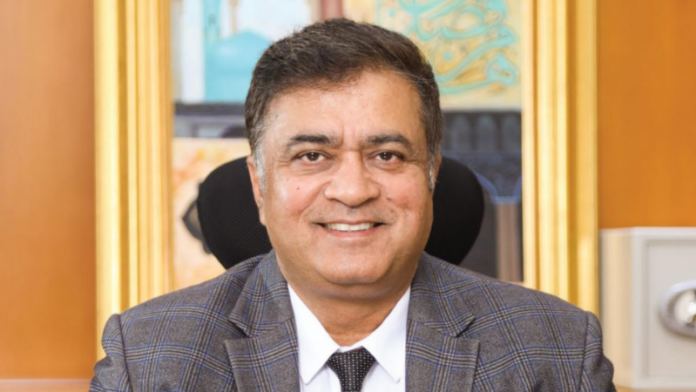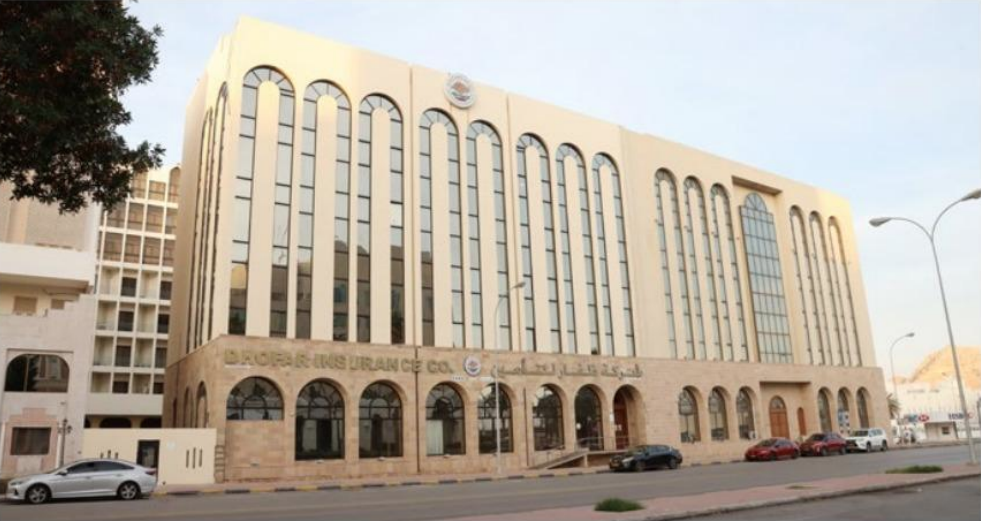Sunil Kohli, the CEO of Dhofar Insurance Company, credits the strong growth of Dhofar Insurance in FY2022 to strong fundamentals and a long-term vision for the business in an interview with Mayank Singh.
OER: Dhofar Insurance has posted promising results for the financial year 2022. Are the results a validation of the strategic roadmap instituted by the company in 2018?
Sunil Kohli: This is true for any organisation as things start with a foundation. To draw a parallel, like in any building it is important to ensure that the foundation is put in place properly and the layout design is executed well architecturally as this is the only way to ensure that the finished product is perfect.
The roadmap and strategic changes introduced at the formation or recalibration stage prove beneficial for the company as it moves ahead. I would credit a large part of our success to the right planning. As the Japanese axiom states, strategy entails 80 per cent of planning and 20 per cent execution.
Strong planning also ensures quick execution. To sum up, our success is the result of the initial homework which was done during the restructuring in 2018, the strategies instituted and the successful execution of those plans.
OER: You spoke about the overall strategic direction. Can you share some of the important initiatives which the company has focused upon as a part of its larger strategic roadmap?
Sunil Kohli: The foremost amongst this is people. The importance of our employees cannot be overstated as in the insurance industry we do not have any other asset apart from people. Thus we need to constantly invest in our people to enhance their knowledge, keep them motivated and empower them. In addition, one needs to develop a team by understanding their aspirations and requirements, and training them.
Once they are trained, skilled and customer-oriented one needs to empower them by giving them the independence to take decisions which are good for the organisation with proper mechanisms. This is the primary focus for any leader who wishes to make an organisation work better. We worked on this pillar and after the first six months, it started giving us the desired results helping us reach where we are.
The second important pillar is customer centricity which entails keeping customers as the central focus of all decisions. It is important to build one’s strategy by considering what the customer needs and how those can be fulfilled. Taking forward the pillars of people and customer centricity was our third pillar of digitalisation – which is an essential tool for doing things more efficiently.
Our thrust on digitalisation has enabled employees to work productively, avoiding repetitive or manual work and focusing on the qualitative aspects of the job. Digital platforms help customers access our products and services with ease. These were the three pillars which were identified and worked upon over the last few years and they have yielded the desired results.
OER: How did Dhofar Insurance face the COVID-19 pandemic and ensure business continuity?
Sunil Kohli: We had to be nimble to negotiate the COVID-19 pandemic. When the pandemic-related news started emanating from China and other countries in early 2020 we kept our ears to the ground and were fully seized of the issue.
Once cases started rising and lockdowns were imposed in various countries we understood that it was unlikely that Oman would remain isolated from its aftermath. In January 2020 we formed a business continuity team comprising the head of departments. The team had daily meetings to make sure that business continued to function with minimum disruption.
A digital roadmap was rolled out and we worked on the probability of multiple scenarios such as a partial or complete lockdown and the kind of digital outreach which would be needed to service customers for buying insurance, service and claim settlements. The requisite digital and IT hardware infrastructure required to equip our staff to work remotely across 42 branches and the head office was implemented immediately. Our staff was trained on remote working possibilities before things got worse.
As a result, when the pandemic affected Oman, we were prepared and trained to work remotely. A daily monitoring system was followed for one and a half years and we constantly reviewed and actioned things which required immediate attention.
It was like a project where everyone was working on ensuring business continuity and this helped Dhofar Insurance to maintain topline and bottom-line growth during the period.
OER: Developing national talent and promoting Omanisation are important goals for the Sultanate. How is Dhofar Insurance Company contributing towards these objectives?
Sunil Kohli: Recruiting, skilling, training and promoting national talent has been our primary focus over the last four years and this has led to a rapid improvement in our Omanisation ratio. Dhofar Insurance has an 85 per cent Omanisation percentage, which is in line with various regulatory norms.
The focus has been on two aspects – one is to train our in-house Omani talent through skill enhancement programmes which suit their needs. The idea is to equip our Omani employees with a level of proficiency which would help them take on various responsibilities as per their capabilities and the company’s requirements over a period of time. Thus we are creating future leaders within the organisation.
Secondly, we are hiring young Omanis from colleges and Universities and providing them with the necessary growth ecosystem.
OER: Natural calamities-led claim settlements have been on the rise over the last few years, putting pressure on the profitability of insurance companies and raising the cost of reinsurance – how has Dhofar Insurance negotiated these and other challenges?
Sunil Kohli: The market has been challenging due to the large number of insurance companies in comparison to the size of the market. There are 20-plus companies in a market with a premium size of RO450mn which leads to fierce competition. This in turn has led to price undercutting by some companies creating a negative cascading effect and bringing prices down to a level which is uneconomical for the industry.
It is important that insurance companies look at an economic price that balances the interest of all stakeholders. This is essential for the survival of the industry and serving the interest of customers. We refrain from underwriting business at any cost and garnering market share.
On the contrary, we follow a balanced approach with reasonable pricing and a strong focus on customer service. Our reputation as a fundamentally strong insurance provider attracts a sizeable number of customers despite the fact that we may not be the lowest-priced company in the market. Overall our customer-centricity and service have helped us tide over the challenge of fierce competition in the market. We are trying to expand our market by introducing new products and not being too dependent on a single line of business.
Prior to 2018, a single product comprised 65 per cent of our business but we have balanced the portfolio and today no product accounts for more than 30-35 per cent of our business. Overall, our margins have reduced due to pricing pressure but we have successfully maintained a balance between business and profitability.
From a reinsurance perspective, this is becoming a tough market due to the frequency of natural calamities over the last few years, price centricity and fierce competition. Reinsurance support is getting progressively more difficult. We have managed this challenge due to our good underwriting skills and by giving consistent results to our reinsurers.
In addition, we have applied certain prudent guidelines in consultation with them. As a result, we have retained the confidence of our reinsurers and I am proud to share that we have had reinsurers who have worked with Dhofar Insurance for 30 years.
OER: Dhofar Insurance has posted good results for the year 2022 with gross written premiums being up by 18 per cent and profits by over 50 per cent. What have been the key enablers of this growth?
Sunil Kohli: Overall, the insurance market in Oman is growing by less than 5 per cent, while Dhofar Insurance INTERVIEW has grown by 18 per cent in 2022. Our growth is the result of good performance across multiple lines of business.
We have done well on the corporate business side by securing renewals and writing new business. We have also grown significantly in the retail business with motor insurance doing well, a strong growth in life insurance and an acceptable increase in medical insurance.
The overall growth of the business, efficiency initiatives and cost control measures being put in place by Dhofar Insurance has contributed to the 50 per cent increase in profits. I would also like to highlight the 67 per cent rise in our investment income. Our investment income has started giving us good returns which will bring an enhanced level of stability to the business.
OER: Looking ahead, how do you foresee Dhofar Insurance’s future growth prospects?
Sunil Kohli: Our future growth is going to come from life and medical insurance. These are areas where the market is underpenetrated and we see an upside. The Capital Market Authority is working on the implementation of Dhamani – a compulsory medical insurance platform.
Once this is implemented it will be an additional revenue stream and growth opportunity for insurance companies. Given the market scenario, the 18 per cent growth in gross written premiums recorded in 2022 was an excellent achievement. If there are new opportunities in the market such as the commissioning of Greenfield projects in 2023 then we will try to capitalise on them.
In the absence of such opportunities, we may end up with a growth which is good but which may match the one recorded in 2022.
OER: Instituting a new Board of Directors was part of the restructuring which Dhofar Insurance underwent in 2018. How has this contributed to the company’s success?
Sunil Kohli: Dhofar Insurance’s Board of Directors have played a seminal role in the success of the company. They chalked out the vision, strategy and controls and these were executed by the management team as per their direction.
Their varied experience, understanding and guidance have helped in taking the company forward. Every element of business such as governance, strategy, digitalisation, underwriting and distribution strategies etc. are discussed strongly at the Board level and we work in accordance with their feedback and advice.
AT A GLANCE
Dhofar Insurance Company (S.A.O.G) has announced its initial unaudited results for the year ended 31.12.2022. The results are subject to a review by the Audit Committee and approval by the Board of Directors.
Dhofar Insurance Company (S.A.O.G) has announced its initial unaudited results for the year ended 31.12.2022. The results are subject to a review by the Audit Committee and approval by the Board of Directors.
Overall the Company has shown remarkable growth on all important financial parameters. The highlights of its performance are as follows:
- Gross Written Premium grew year-on-year by 18% to RO65,068,845 at 31st December, 2022 compared to RO55,021,056 at 31st December, 2021.
- Profit after Tax recorded a spectacular rise of 50% to RO3,827,808 at 31st December, 2022 compared to RO2,554,709 at 31st December, 2021.
- Net Underwriting Results increased by 5% to RO8,693,229 at 31st December, 2022 compared to RO8,314,021 at 31st December 2021.
- Investment Income and Other Income grew by an impressive 67% to RO4,466,556 at 31st December, 2022 compared to RO2,680,131 at 31st December 2021.
- General and Administrative grew by 9% to RO(8,491,123) at 31st December, 2022 compared to RO(7,822,863) at 31st December 2021.
- Finance Costs decreased by minus 11% to RO(288,424) at 31st December, 2022 compared to RO(324,659) at 31st December 2021.
- Basic Earnings per Share (EPS) grew by 46% to 0.037 at 31st December, 2022 compared to RO0.026 at 31st December 2021.
These results are initial estimates and are subject to various factors such as a review of insurance funds from the external actuary.







